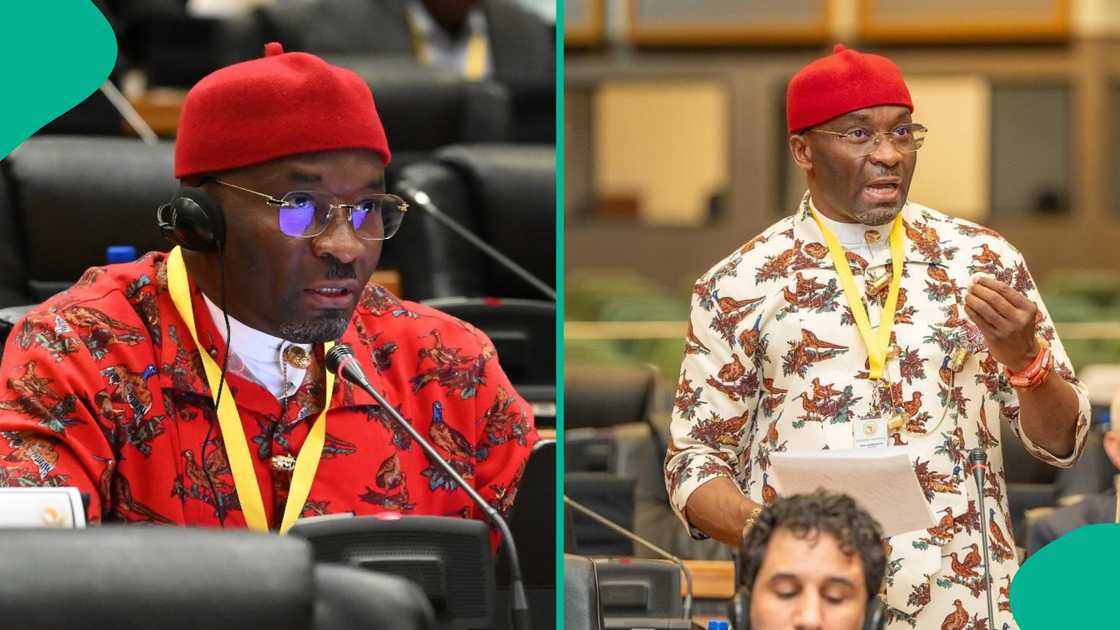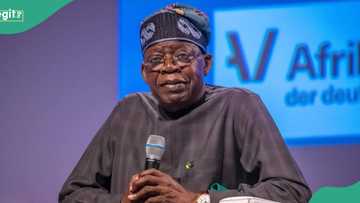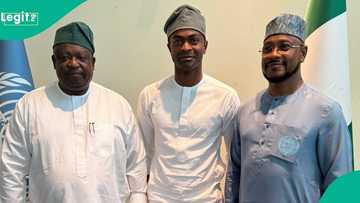Agenda 2063: Deputy Speaker Kalu Reaffirms Nigeria's Commitment to African Unity
- Nigerian House of Reps deputy speaker Benjamin Kalu reaffirmed Nigeria's commitment to Agenda 2063
- Kalu highlighted Nigeria's progress in areas like economic diversification, regional connectivity, youth empowerment, and good governance
- The lawmaker also urged fellow African nations to increase investment in critical infrastructure, prioritise environmental sustainability, and work collectively to achieve transformative change
Midrand, South Africa - In an address at the Conference of Speakers of the African Parliament in South Africa, Deputy Speaker of the Nigerian House of Representatives, Benjamin Kalu, reaffirmed Nigeria's dedication to the African Union's Agenda 2063.
This visionary blueprint aims to transform Africa into a global powerhouse by 2063.
How Agenda 2063 will be integrated into Nigeria's development
Kalu stressed the imperative of integrating Agenda 2063 into Nigeria's national development strategy, highlighting the symbiotic relationship between Nigeria's future and Africa's success.

Source: Twitter
Representing Speaker Tajudeen Abbas, PhD, Kalu stressed that Nigeria's growth and prosperity are inextricably linked to Africa's collective progress.
By aligning its policies with Agenda 2063, Kalu noted that Nigeria reinforces its leadership role, fosters regional cooperation, and contributes to a prosperous, united, peaceful Africa.
Agenda 2063: Kalu highlights Nigeria's progress
According to Kalu, Nigeria has made significant progress in key areas. These include:
- Economic Diversification: Investments in agriculture, technology, and renewable energy to reduce dependence on oil
- Regional Connectivity: Engagement in projects like the African Continental Free Trade Area (AfCFTA) to enhance intra-African trade and economic integration
- Youth Empowerment: Programs focused on education, vocational training, and job creation to harness the demographic dividend of Nigeria's large youth population
- Good Governance: Commitment to promoting accountability, democratic practices, and effective leadership
Kalu rallies other African nations
The House of Reps deputy speaker also urged fellow African nations to follow suit, emphasising the need for:
- Increased Investment: In critical infrastructure and targeted programs aimed at empowering Africa's youthful population
- Environmental Sustainability: In economic planning to ensure a prosperous future
- Collective Effort: Cooperation and a shared vision to achieve transformative change
“As Africa's most populous nation and largest economy, Nigeria holds a unique position on the continent,” Kalu said.
“By embarking on economic diversification, Nigeria aims to foster sustainable economic growth that reflects the aspirations of Agenda 2063.”
What is Agenda 2063?
Agenda 2063 is Africa's development blueprint, aiming to achieve inclusive and sustainable socio-economic development over the next 50 years.
Adopted in 2015 by the African Union, it seeks to drive economic growth, strengthen cultural identity, ensure peace and security, and promote political independence and regional cooperation.
The agenda's main goals include equitable water management, youth empowerment, gender equality, and improved democracy and justice across the continent.
Nigeria considers possibility of ECOWAS single currency
In another report, Nigeria's finance minister and coordinating minister of the economy, Wale Edun, was hopeful about the feasibility of the proposed monetary union and a single currency for the West African Monetary Zones (WAMZ).
This came despite the recent failure of member states to meet the established convergence criteria.
The development follows an earlier report by Legit.ng that Nigeria had yet to decide on the next course of action for adopting the Economic Community of West African States (ECOWAS) single currency, "Eco", by member states.
PAY ATTENTION: Сheck out news that is picked exactly for YOU ➡️ find the “Recommended for you” block on the home page and enjoy!
Source: Legit.ng




